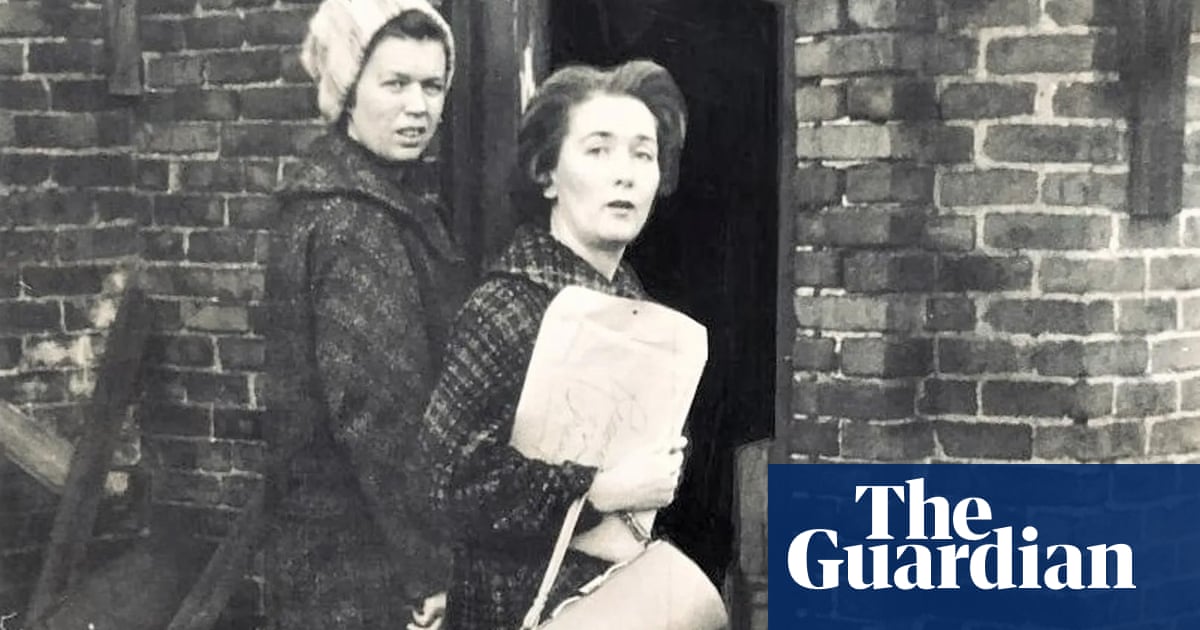
n 11 April, midway between the Grammys and the Oscars, the US Guild of Music Supervisors (GMS) held its 11th annual awards ceremony, celebrating the people “who help the director devise the musical strategy for the film and then execute it,” says Randall Poster, a two-time GMS winner whose credits include Boyhood, Zodiac and the Royal Tenenbaums. It was a good night for the people who worked on Soul, Ma Rainey’s Black Bottom, Promising Young Woman and The Cuban, but none of them will be recognised at the Academy Awards, nor at any other major movie awards ceremony. Music supervisors may be increasingly important, but during awards season they remain unsung. “This is the one night of the year where we can be part of the conversation about excellence,” says GMS president Joel C High.
The Oscars still has just two music categories: best original song and best original score, which date back to the 1930s. While there were always startling omissions (Goldfinger! Fight the Power!), for decades best original song did at least celebrate the musical moments that mattered to movie-goers, from Over the Rainbow and White Christmas to Theme from Shaft and Take My Breath Away.
But the Academy’s strict focus on original material no longer adequately reflects the relationship between music and cinema. “Original songs for movies are hard to come by these days,” says Joe Reid, who co-hosts the This Had Oscar Buzz podcast with Chris Feil. Only one of this year’s best original song nominees, Húsavík from Eurovision Song Contest: The Story of Fire Saga, plays a narrative role. The other four don’t appear until the end credits. It’s not so surprising when you learn how the category is judged: voters are sent clips of the songs in context and aren’t obliged to watch the whole film.
From the 1990s, film-makers became less interested in commissioning new songs, so the best original song category was soon dominated by animation, musicals, documentaries and films about the music industry; Kendrick Lamar’s all-star Black Panther soundtrack in 2018 was a rare exception and a conscious throwback to an earlier blockbuster era.
During this same period, many of the most memorable musical moments in cinema have come from the shrewd deployment of existing songs. Quentin Tarantino spearheaded a generation of music-savvy directors – including Wes Anderson, Sofia Coppola, Edgar Wright and Andrea Arnold – who work with music supervisors to put old songs into brilliant new contexts: consider the impact of Lou Reed’s Perfect Day in Trainspotting, or Elton John’s Tiny Dancer in Almost Famous. Some movies, such as Pulp Fiction, Romeo + Juliet and Guardians of the Galaxy, have produced platinum-selling soundtrack compilations. In the world of streaming playlists, Drive’s hybrid of extant songs and original score became the touchstone for a whole synthwave scene.
Poster, one of a handful of music supervisors who have made it into the Academy under the umbrella of “member-at-large”, says that the job is to “use music as a tool to enhance the storytelling”. From this year’s awards crop, the unexpected featherlight innocence of Paris Hilton’s Stars Are Blind at the heart of Promising Young Woman is far more emotionally and narratively potent than the anachronistic Celeste song used for the credits of The Trial of the Chicago 7. “The Academy hasn’t evolved to reflect the collaboration and remix culture that categorises modern film-making,” says Reid. “If the Academy Awards are meant to honour the things that make the movies great, these are the moments people remember.”
Music supervision is a relatively new vocation, fast-growing and unusually diverse: the GMS has almost 500 members, almost half of whom are women. “When I started in 1998 there were just a handful in the UK,” says British music supervisor Abi Leland, who recently worked on all of Steve McQueen’s Small Axe movies. “There’s more work out there now.”
Yet the role is still poorly understood by the general public. Leland calls music “one of the most misunderstood and undervalued areas” of film production. “Everyone knows what a composer or editor does, but I think there’s still different interpretations of what a music supervisor does. It can be too easily dismissed as being driven by the director, but how is that different from any other role on a film?”
When the GMS got members to ask their parents what they thought the job involved, the guesses were often comically wide of the mark. “That’s why we have the guild,” says High. “There’s a perception that a music supervisor is just a glorified playlist-maker, but a good music supervisor is involved in every aspect of the music: working with composers, songwriters, marketing.” Supervisors can work on a film all the way from the script stage through to trailers and soundtrack albums, or coordinate the relationship between star musicians and composers, as Dave Jordan did with Kendrick Lamar and Ludwig Göransson on Black Panther.
David Arnold, best known for scoring five James Bond films, suggests that this mutability is one possible barrier to Academy recognition. “I’m conflicted because I think music supervision is a tricky job and is often done brilliantly,” he says. “But sometimes the job is creating an entire world and sometimes it’s being handed a list of songs and clearing them. It relies on two things aside from taste. One is budget: it’s a much easier job if you can afford anything you want. The other thing is, if you’re music-supervising a Martin Scorsese or Quentin Tarantino movie, it’s difficult to tell who’s making the choices, so it’s difficult to know who you’re rewarding.”
“It’s complicated,” Poster concedes. “I always correct people when they say I pick the songs. No. Wes [Anderson] and I collaborate. We share music, we talk about it and we work to put it together. Maybe there could be a category for best film music that would include collaborators.”
Music supervisors are not without opportunities to take home trophies. The Emmys introduced an award for outstanding music supervision in 2017 and the Grammys honour compilation soundtracks, while the Hollywood Music in Media awards and the Music+Sound awards launched in 2009 and 2012 respectively.
The Oscars, however, aren’t promising anything. The Academy’s reliance on TV money breeds an obsession with keeping the ceremony as tight as possible and therefore a reluctance to add new awards. Music supervision is stuck in the same waiting room as more established professions such as casting and stunt work. The GMS sees Academy membership for music supervisors as a realistic first step before it even begins to lobby for an award. “Being a relatively new art form, we’re respectful of how long other people have been working towards this stuff,” says High. “It’s the Oscars. Change is hard. We just want a seat at the table with our music peers.”
The Academy did not respond to a request for comment, but Bafta said it reviews the categories each year, with potential new categories “always weighed carefully”. They point to the recent addition of a casting award “after a year-long industry consultation”.
It’s likely to be a long wait. Leland thinks that Academy acknowledgment is overdue, saying: “It’s out of date, it needs to change”, but Poster is more phlegmatic. “I might be in the minority but it doesn’t keep me up at night that there isn’t a music supervision category in the Oscars,” he says. “What’s really the reward is getting to make more movies with the directors you admire and respect. These movies are for ever.”












